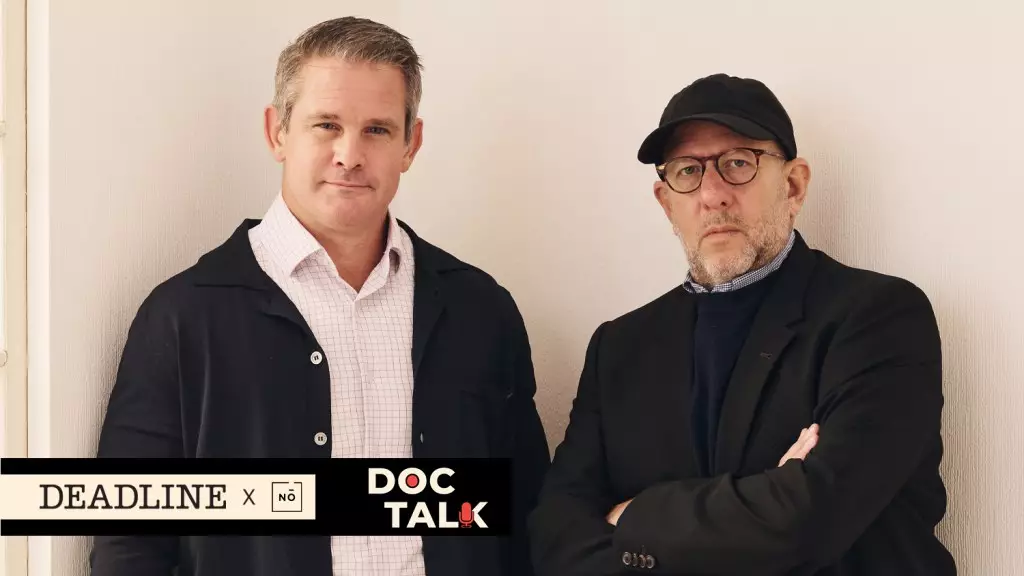In a deeply polarized political landscape, former Congressman Adam Kinzinger has emerged as a significant figure who challenges the norms of party loyalty, particularly within the Republican Party. His opposition to Donald Trump has garnered him unexpected acclaim from Democrats, illuminating the sacrifices he made in pursuit of his principles. This article delves into Kinzinger’s journey, including the personal and political ramifications of his stance, as well as his recent endeavors in the documentary realm.
Kinzinger’s rise within the GOP was marked by promise and potential, positioning him as a beacon of the party’s younger, more moderate faction. However, after the events of January 6, 2021, his trajectory shifted dramatically. By agreeing to serve on the committee investigating the Capitol insurrection—an act seen by many as a betrayal of Trump and his fervent base—Kinzinger not only altered the course of his political career but also placed himself and his family in grave danger. The myriad threats he has faced, including aimed at his wife and young child, underscore the perilous consequences associated with a principled stand in today’s political climate.
This profound personal cost highlights a troubling reality: loyalty to party over country has become a prevailing sentiment among many in American politics. Kinzinger’s decision to prioritize his convictions over blind allegiance to an increasingly radical party standard has been met with vitriol and hostility from those who once regarded him as an ally.
Kinzinger’s journey finds a unique intersection with Hollywood, particularly through the creation of “The Last Republican,” a documentary directed by Steve Pink. This film chronicles Kinzinger’s evolution, illustrating his transition from a promising political figure to an outspoken critic of his party. The collaboration between Kinzinger—a staunch conservative—and Pink, who represents a more liberal perspective, reveals the complex and often contradictory nature of political and artistic alliances in contemporary society.
The documentary captures not only Kinzinger’s political disillusionment but also his poignant acknowledgment of missed opportunities to effect change within the GOP. His lamentation of failing to “lead our own coup in the Republican Party” encapsulates a sense of urgency and frustration that many anti-Trump Republicans likely feel. This internal conflict speaks volumes about the ideological rift within the party and the challenges faced by those who dare to speak out.
Kinzinger’s predicament is emblematic of a larger, ongoing struggle for the soul of the Republican Party. The schism between traditional conservativism and Trumpism presents a complex challenge for those who wish to reclaim the party from its current trajectory. His experience has catalyzed discussions around values, leadership, and integrity within the GOP, raising important questions about the future of the party and its relevance in a rapidly changing political landscape.
Furthermore, the rise of social media and its role in amplifying threats against public figures cannot be ignored. Kinzinger’s experience serves as a case study in how political dissent can lead to personal jeopardy, bringing to light the darker side of political discourse in America today. It evokes a broader conversation about the ramifications of political polarization and the toll it takes on individuals and families.
As Kinzinger engages with artistic communities, such as filmmakers and musicians at platforms like the Toronto International Film Festival, he exemplifies the potential of cultural narratives to bridge political divides. The discussions around music-themed documentaries and creative collaborations, such as Pharrell Williams’ unique project of transforming friends and mentors into animated Lego characters, demonstrate that art can act as a vehicle for exploring complex themes of identity, loyalty, and social change.
The intertwining of Kinzinger’s political story with filmmaking underscores the importance of narrative in contemporary discourse. A figure like Kinzinger, once a paragon of partisan loyalty, now becomes a storyteller in his own right, challenging audiences to reconsider their perceptions of political commitment, courage, and the cost of truth.
Adam Kinzinger’s journey is not just a chronicle of personal sacrifice but a poignant reminder of the complexities of modern American politics. His willingness to confront the repercussions of his choices provokes critical reflection on what it means to be a public servant in an era defined by extremism and division. As he continues to navigate this challenging landscape, Kinzinger embodies the hope that, even in the face of adversity, integrity and dialogue remain paramount in the quest for a more unified political discourse.

Leave a Reply